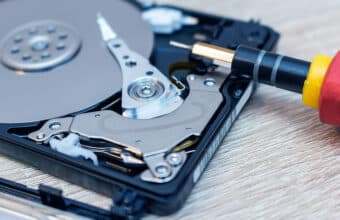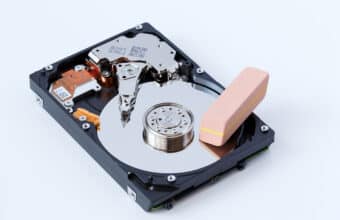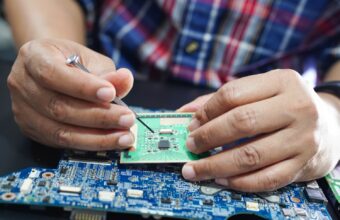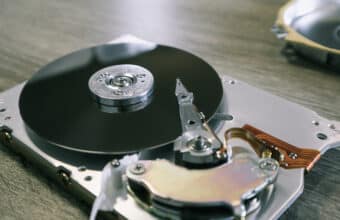Data Destruction
-
5 Common Mistakes Made with DIY Hard Drive Destruction
Though the majority of data breaches are incited by cyber attackers that pierce network defenses or exploit the human element, sheer negligence still causes one out of every four data breaches, so you must always remember the importance of your hardware. Hard disk drives (HDDs) and solid state drives (SSDs) are too easy to forget […]
read more -
Half of Used Enterprise Routers Still Contain Sensitive Data: A Wake-Up Call for Secure ITAD
In today’s era of digital transformation, securing sensitive information is becoming increasingly important. Not only do businesses need to take care of PCs, servers, and network equipment on the network, but they also need to ensure that sensitive information is wiped before reselling or disposing of devices when they come offline. A recent study by […]
read more -
What to Do with Company Records After Your Business Closes Its Doors
Once your business closes up shop, there are many responsibilities you’ll no longer have to worry about. However, maintaining some of your company’s records remains important whether or not you are open for business. Though you may not be using these records for day-to-day business tasks anymore, you may still need the data contained in […]
read more -
Why Even Paperless Offices Need Scheduled Shredding Services
These days, companies in a variety of different industries are going paperless for many reasons. Physical copies of documents can take up a lot of storage space, especially for a larger company. And digitizing all of a company’s documents makes it possible for any employee with the right credentials to access them at any time. […]
read more -
3 Reasons Your Business Should Invest in Hard Drive Destruction
Storing and accessing information is important for any businesses — but so is deleting it when it’s no longer needed. Having a plan of action for dealing with digital storage is essential for companies that work with any type of private information. Unfortunately, merely dragging digital assets into a recycle bin won’t entirely eradicate them, […]
read more -
Important Considerations When Disposing of Physical PHI Records
Improperly disposing of patient health information is a serious HIPAA violation and can result in hefty fines for your organization. Therefore, if you handle sensitive public health information (PHI), safe disposal of these records is vital. Aside from any related monetary fines, failure to properly dispose of PHI creates a risk for your patients and […]
read more -
Downstream Due Diligence for Healthcare IT Equipment Recycling and Reselling
Healthcare organizations are no strangers to the importance of data privacy and security. With sensitive patient information being processed and stored on their IT equipment, the stakes are high when it comes to proper disposal of this equipment. Recycling or reselling used IT equipment may seem like an easy solution, but it can expose healthcare […]
read more -
What Is Data Remanence?
Computer hardware can store an impressive amount of data. However, once users finish using their devices, it’s important to properly destroy any remaining sensitive data to prevent it from being accessed by unauthorized parties. However, this isn’t as simple as dropping files in the recycle bin. Sometimes, thanks to a concept known as data remanence, […]
read more -
Education Data Protection and Document Disposal: How to Stay FERPA-Compliant
The Family Educational Rights and Privacy Act (FERPA) is a federal law that was passed to protect the privacy of student records. The rules and regulations under the law apply to schools that receive funding from the Department of Education. Failing to comply with FERPA requirements is a serious privacy violation that can have real […]
read more














